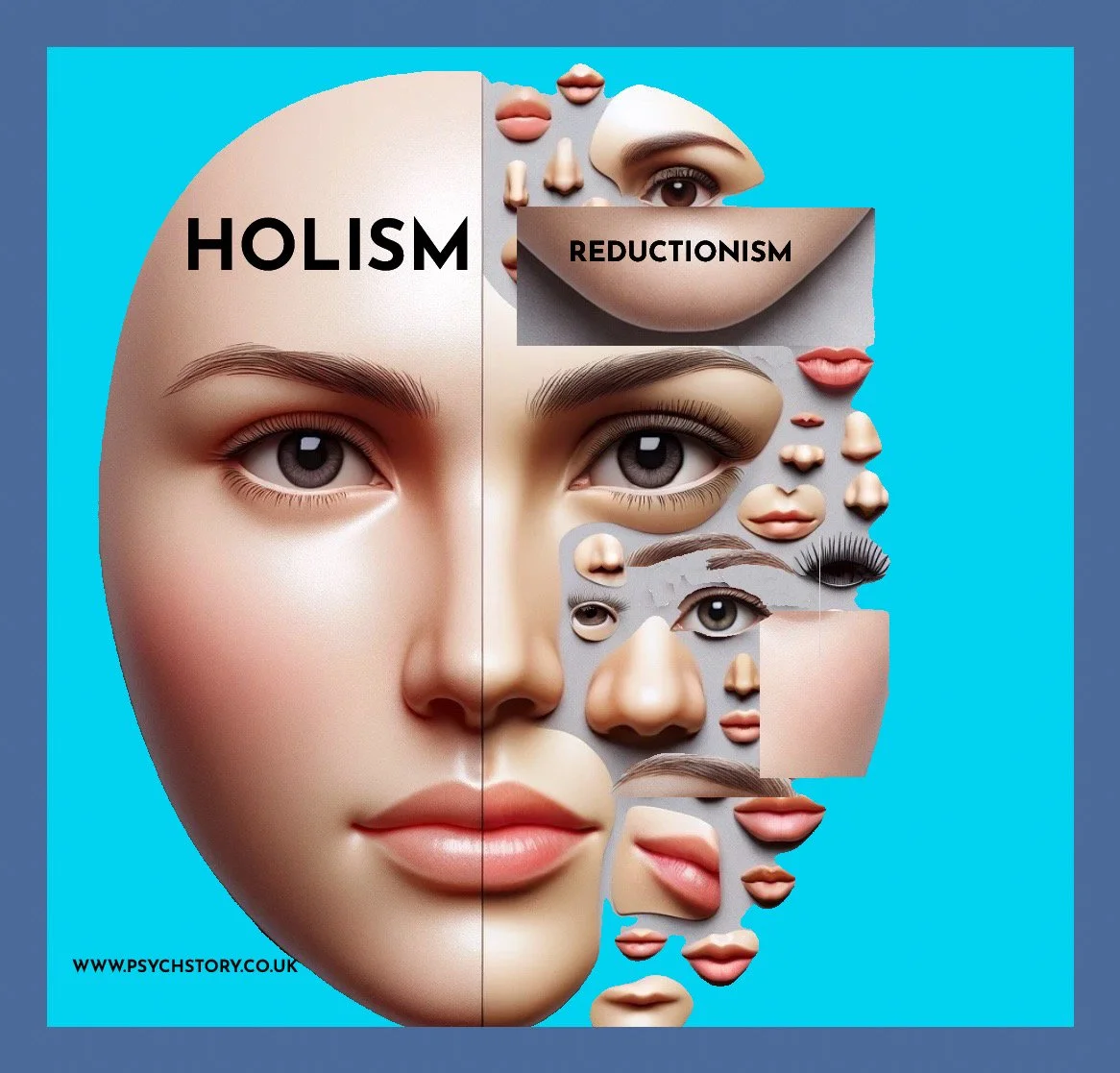FREE WILL: DO YOU HAVE IT?
Are you truly in control, or is your brain a well-oiled machine running on autopilot? Dive into the fascinating debate on free will, determinism, and the neuroscience behind the choices you think you’re making. Spoiler: you might not have chosen to read this… but you won’t want to stop.
INTRODUCTION TO DEBATES
Explore key debates in psychology, including gender and cultural bias, free will vs. determinism, and the nature-nurture debate. Understand holism vs. reductionism, the idiographic vs. nomothetic approach, and the ethical implications of research, including social sensitivity. Learn about androcentrism, ethnocentrism, causal explanations, and levels of psychological explanation in this essential guide to psychological investigation.
GENDER BIAS
Explore gender bias in psychology, including alpha bias, which exaggerates differences between genders, and beta bias, which minimises or ignores them. Alpha bias is evident in Freud’s psychodynamic theory, which portrays female development as inferior to males, and in evolutionary psychology, which emphasises distinct adaptive roles for men and women. In contrast, beta bias assumes no significant differences between genders, often applying male-based research to both sexes. Much of early psychological research exhibited androcentric beta bias, generalising male findings to women. Recognising these biases is crucial for critically evaluating psychological research.
CULTURAL BIAS
Culture plays a crucial role in shaping psychological research and theory. Cultural bias occurs when research findings are applied universally despite cultural differences. Ethnocentrism leads to viewing one's culture as the standard, often resulting in biased interpretations of behaviour. In contrast, cultural relativism recognises that behaviour must be understood within its cultural context.
Psychologists distinguish between etic and emic approaches. An etic approach derives theories and applies them universally, often imposing Western norms onto other cultures (imposed etic). In contrast, an emic approach explores behaviour from within a culture, acknowledging unique social and environmental influences. Recognising these biases is essential for conducting fair and representative psychological research.
FREE WILL AND DETERMINISM:
Explore the debate between free will and determinism in psychology. Does human behaviour result from conscious choice, or is it shaped by biological, environmental, or unconscious forces? From hard determinism, which rejects free will entirely, to soft determinism, which allows for some autonomy, this discussion has significant implications for science, ethics, and personal responsibility.
NATURE VERSUS NURTURE
THE NATURE VS NURTURE DEBATE
Delve into the enduring debate of nature versus nurture: is our behaviour shaped more by genetic inheritance (nature) or by our environment and experiences (nurture)? While nature emphasises heredity and biological predispositions, nurture focuses on upbringing, culture, and external influences. Modern psychology adopts the interactionist approach, acknowledging that behaviour is influenced by both forces working together. For example, a genetic predisposition for a trait may only manifest in certain environmental conditions, highlighting the intricate balance of nature and nurture in shaping who we are..
HOLISM AND REDUCTIONISM:
Explore the debate between holism and reductionism in psychology. Should behaviour be understood as a sum of its parts or as a whole, complex system? Reductionism breaks behaviour into biological (genes, neurochemistry) or environmental (stimulus-response) explanations, while holism considers the broader picture, including social and cognitive influences. Understanding these levels of explanation is key to interpreting psychological phenomena.
NOMOTHETIC VERSUS IDIOGRAPHIC
Idiographic and nomothetic approaches to psychological investigation
THE JOURNEY FROM MAGIC, TO RELIGION AND TO SCIENCE
"The Journey from Magic to Religion to Philosophy to Science"
Delve into the evolution of human thought, tracing how humanity moved from mystical explanations rooted in magic to the structured belief systems of religion through the questioning frameworks of philosophy and finally to the empirical, evidence-based approach of science. This journey highlights our quest to understand the world with increasing precision and reason.










